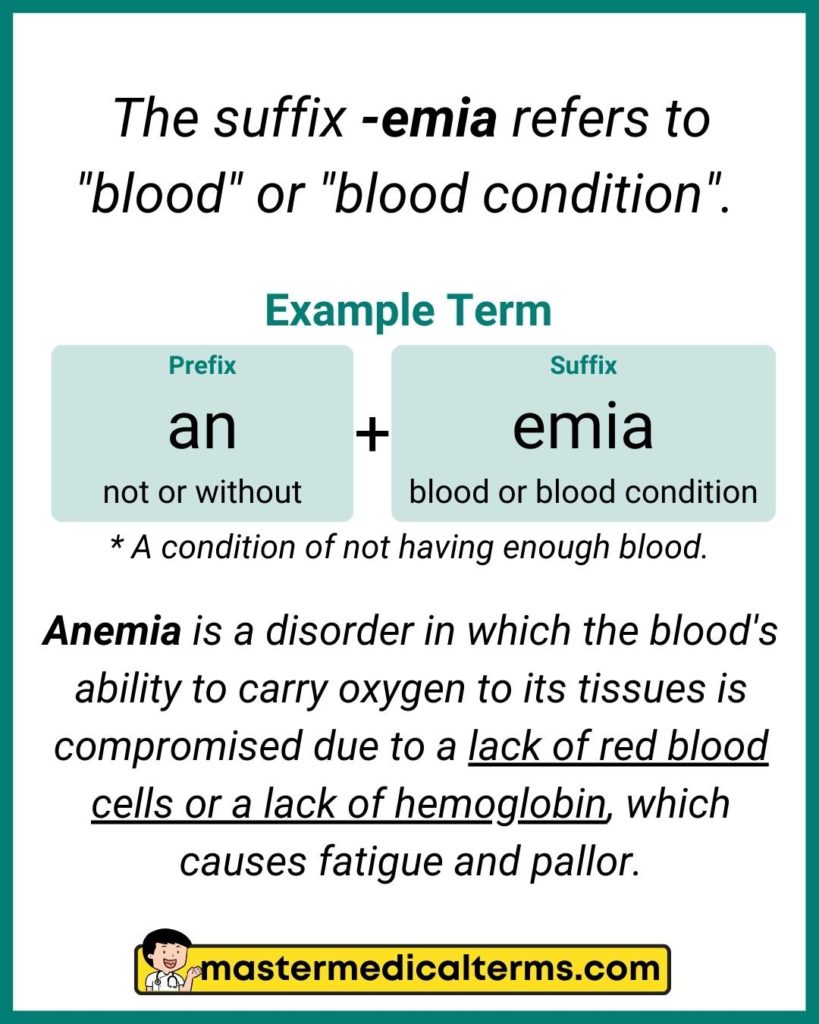The medical suffix term -emia refers to “blood” or “blood condition”.
Example Word: an/emia
Word Breakdown: An- is a prefix term that pertains to “not” or “without”, and -emia denotes “blood” or “blood condition”.
Definition: Anemia is a disorder in which the blood’s ability to carry oxygen to its tissues is compromised due to a lack of red blood cells or a lack of hemoglobin, which causes fatigue and pallor.
Anoxemia: an– (“without” or “lack of”) + ox (“oxygen”) + –emia ( “blood”). Definition: A condition in which there is a deficiency of oxygen in the blood. Hyperlipidemia: hyper– (“high” or “excessive”) + lipid (“fats”) + –emia ( “blood”) Definition: a condition in which there are high levels of lipids (fats) in the blood. Hypoglycemia: hypo– (“low” or “deficient”) + glyc (“sugar”) + –emia ( “blood”). Definition: A condition in which there is a deficiency of glucose (sugar) in the blood. Leukemia: leuk– (“white”) + –emia ( “blood”). Definition: A type of cancer that affects the blood cells and bone marrow. Acidemia: acid (“acidic”) + –emia ( “blood”). Definition: A condition characterized by an abnormal increase in acidity of the blood. Azotemia: azo (“nitrogen”) + –emia ( “blood”). Definition: Abnormal accumulation of nitrogenous waste products in the blood. Hypoxemia: hypo– (“low” or “deficient”) + ox (“oxygen”) + –emia ( “blood”). Definition: A condition characterized by a deficiency of oxygen in the blood. Pneumonemia: pneumo (“lungs”) + –emia ( “blood”). Definition: An infection of the lungs, usually caused by bacteria, which can result in inflammation ( inflammation increases blood flow) and sepsis. Polycythemia: poly– (“many”) + cyt (“cell”) + –emia ( “blood”) Definition: An increase in the number of red blood cells in the blood, which can cause thickening of the blood, leading to increased risk of clotting. Pyemia: py (“pus”) + –emia ( “blood”). Definition: A bacterial infection characterized by the presence of pus in the bloodstream, leading to sepsis and septicemia.More Examples of Medical Terms Ending in -emia




